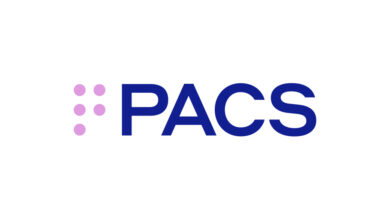ENHERTU® (fam-trastuzumab deruxtecan-nxki) approved in the US as first tumor-agnostic HER2-directed therapy for previously treated patients with metastatic HER2-positive solid tumors

Based on three Phase II trials of AstraZeneca and Daiichi Sankyo’s ENHERTU which showed clinically meaningful responses across a broad range of tumors
ENHERTU now has five approved indications with the latest in HER2-expressing (IHC 3+) metastatic cancers
WILMINGTON, Del.–(BUSINESS WIRE)–AstraZeneca and Daiichi Sankyo’s ENHERTU® (fam-trastuzumab deruxtecan-nxki) has been approved in the US for the treatment of adult patients with unresectable or metastatic HER2-positive (IHC 3+) solid tumors who have received prior systemic treatment and have no satisfactory alternative treatment options.
This indication is approved under accelerated approval based on objective response rate (ORR) and duration of response (DoR). Continued approval for this indication may be contingent upon verification and description of clinical benefit in a confirmatory trial.
ENHERTU is a specifically engineered HER2-directed antibody drug conjugate (ADC) discovered by Daiichi Sankyo and being jointly developed and commercialized by AstraZeneca and Daiichi Sankyo.
The first tumor-agnostic approval of a HER2-directed therapy and ADC by the Food and Drug Administration (FDA) was based on results from the subgroup of patients with HER2-positive IHC 3+ tumors in each of the DESTINY-PanTumor02, DESTINY-Lung01 and DESTINY-CRC02 Phase II trials.
Funda Meric-Bernstam, MD, Chair of Investigational Cancer Therapeutics at The University of Texas MD Anderson Cancer Center, US, said: “Until the approval of fam-trastuzumab deruxtecan-nxki, patients with metastatic HER2-positive solid tumors have had limited treatment options. Based on the clinically meaningful response rates seen across clinical trials, this tumor-agnostic approval means that patients may now be treated with a HER2-directed medicine.”
Dave Fredrickson, Executive Vice President, Oncology Business Unit, AstraZeneca, said: “As the first antibody drug conjugate to be granted a tumor-agnostic indication, ENHERTU is truly delivering on its potential across metastatic HER2-targetable tumors. The approval also elevates the importance of testing for biomarkers, including HER2, across a broad range of tumors to ensure these patients with advanced cancer who have few options know whether a targeted medicine might be right for them.”
Ken Keller, Global Head of Oncology Business, and President and CEO, Daiichi Sankyo, Inc., said: “This fifth indication in the US is a significant milestone as eligible patients with previously treated metastatic HER2-positive solid tumors may now be treated with ENHERTU. The accelerated approval by the FDA for this tumor-agnostic indication is based on the clinically meaningful efficacy seen with ENHERTU across numerous types of metastatic cancers.”
In the DESTINY-PanTumor02 Phase II trial, patients with centrally or locally assessed HER2-positive (IHC 3+) solid tumors including either biliary tract, bladder, cervical, endometrial, ovarian, pancreatic or other tumors treated with ENHERTU showed a confirmed ORR of 51.4% (95% confidence interval [CI]: 41.7-61.0) and a median DoR range of 19.4 months (range: 1.3-27.9+ [+ denotes ongoing responses at data cutoff]). In DESTINY-Lung01, patients with centrally confirmed HER2-positive (IHC 3+) non-small cell lung cancer (NSCLC) treated with ENHERTU showed a confirmed ORR of 52.9% (95% CI: 27.8-77.0) and median DoR range of 6.9 months (range: 4.0-11.7+). A confirmed ORR of 46.9% (95% CI: 34.3-59.8) and median DoR range of 5.5 months (range: 1.3+-9.7+) was seen in patients with centrally confirmed HER2-positive (IHC 3+) colorectal cancer in the DESTINY-CRC02 trial.
The safety of ENHERTU was evaluated in 347 patients with unresectable or metastatic HER2-positive (IHC 3+) solid tumors in the DESTINY-Breast01, DESTINY-PanTumor02, DESTINY-Lung01 and DESTINY-CRC02 trials. The safety profile observed across the trials was consistent with previous clinical trials of ENHERTU with no new safety concerns identified.
Based on these results, fam-trastuzumab deruxtecan-nxki (ENHERTU) has been included in the NCCN Clinical Practice Guidelines in Oncology (NCCN Guidelines®) as a treatment option for multiple metastatic tumors. See NCCN Guidelines® for detailed recommendations.1
This approval was granted under the FDA’s Real-Time Oncology Review program after securing Priority Review and Breakthrough Therapy Designation for ENHERTU in the US in this setting.
The US regulatory submission was reviewed under Project Orbis, which provides a framework for concurrent submission and review of oncology medicines among participating international partners. As part of Project Orbis, ENHERTU is also under regulatory review for the same indication by regulatory authorities in Australia, Brazil and Singapore.
Important Safety Information
Indications
ENHERTU is a HER2-directed antibody and topoisomerase inhibitor conjugate indicated for the treatment of adult patients with:
- Unresectable or metastatic HER2-positive (IHC 3+ or ISH positive) breast cancer who have received a prior anti-HER2-based regimen either:
– In the metastatic setting, or
– In the neoadjuvant or adjuvant setting and have developed disease recurrence during or within six months of completing therapy
- Unresectable or metastatic HER2-low (IHC 1+ or IHC 2+/ISH-) breast cancer, as determined by an FDA-approved test, who have received a prior chemotherapy in the metastatic setting or developed disease recurrence during or within 6 months of completing adjuvant chemotherapy
- Unresectable or metastatic non-small cell lung cancer (NSCLC) whose tumors have activating HER2 (ERBB2) mutations, as detected by an FDA-approved test, and who have received a prior systemic therapy
This indication is approved under accelerated approval based on objective response rate and duration of response. Continued approval for this indication may be contingent upon verification and description of clinical benefit in a confirmatory trial.
- Locally advanced or metastatic HER2-positive (IHC 3+ or IHC 2+/ISH positive) gastric or gastroesophageal junction (GEJ) adenocarcinoma who have received a prior trastuzumab-based regimen
- Unresectable or metastatic HER2-positive (IHC3+) solid tumors who have received prior systemic treatment and have no satisfactory alternative treatment options
This indication is approved under accelerated approval based on objective response rate and duration of response. Continued approval for this indication may be contingent upon verification and description of clinical benefit in a confirmatory trial.
| WARNING: INTERSTITIAL LUNG DISEASE and EMBRYO-FETAL TOXICITY
|
Contraindications
None.
Warnings and Precautions
Interstitial Lung Disease / Pneumonitis
Severe, life-threatening, or fatal interstitial lung disease (ILD), including pneumonitis, can occur in patients treated with ENHERTU. A higher incidence of Grade 1 and 2 ILD/pneumonitis has been observed in patients with moderate renal impairment. Advise patients to immediately report cough, dyspnea, fever, and/or any new or worsening respiratory symptoms. Monitor patients for signs and symptoms of ILD. Promptly investigate evidence of ILD. Evaluate patients with suspected ILD by radiographic imaging. Consider consultation with a pulmonologist. For asymptomatic ILD/pneumonitis (Grade 1), interrupt ENHERTU until resolved to Grade 0, then if resolved in ≤28 days from date of onset, maintain dose. If resolved in >28 days from date of onset, reduce dose one level. Consider corticosteroid treatment as soon as ILD/pneumonitis is suspected (e.g., ≥0.5 mg/kg/day prednisolone or equivalent). For symptomatic ILD/pneumonitis (Grade 2 or greater), permanently discontinue ENHERTU. Promptly initiate systemic corticosteroid treatment as soon as ILD/pneumonitis is suspected (e.g., ≥1 mg/kg/day prednisolone or equivalent) and continue for at least 14 days followed by gradual taper for at least 4 weeks.
HER2-Positive or HER2-Low Metastatic Breast Cancer, HER2-Mutant NSCLC, and Solid Tumors (Including IHC 3+) (5.4 mg/kg)
In patients with metastatic breast cancer, HER2-mutant NSCLC, and other solid tumors treated with ENHERTU 5.4 mg/kg, ILD occurred in 12% of patients. Median time to first onset was 5.5 months (range: 0.9 to 31.5). Fatal outcomes due to ILD and/or pneumonitis occurred in 1.0% of patients treated with ENHERTU.
HER2-Positive Locally Advanced or Metastatic Gastric Cancer (6.4 mg/kg)
In patients with locally advanced or metastatic HER2-positive gastric or GEJ adenocarcinoma treated with ENHERTU 6.4 mg/kg, ILD occurred in 10% of patients. Median time to first onset was 2.8 months (range: 1.2 to 21).
Neutropenia
Severe neutropenia, including febrile neutropenia, can occur in patients treated with ENHERTU. Monitor complete blood counts prior to initiation of ENHERTU and prior to each dose, and as clinically indicated. For Grade 3 neutropenia (Absolute Neutrophil Count [ANC] <1.0 to 0.5 x 109/L), interrupt ENHERTU until resolved to Grade 2 or less, then maintain dose. For Grade 4 neutropenia (ANC <0.5 x 109/L), interrupt ENHERTU until resolved to Grade 2 or less, then reduce dose by one level. For febrile neutropenia (ANC <1.0 x 109/L and temperature >38.3º C or a sustained temperature of ≥38º C for more than 1 hour), interrupt ENHERTU until resolved, then reduce dose by one level.
HER2-Positive or HER2-Low Metastatic Breast Cancer, HER2-Mutant NSCLC, and Solid Tumors (Including IHC 3+) (5.4 mg/kg)
In patients with metastatic breast cancer, HER2-mutant NSCLC, and other solid tumors treated with ENHERTU 5.4 mg/kg, a decrease in neutrophil count was reported in 63% of patients. Seventeen percent had Grade 3 or 4 decreased neutrophil count. Median time to first onset of decreased neutrophil count was 22 days (range: 2 to 939). Febrile neutropenia was reported in 1% of patients.
HER2-Positive Locally Advanced or Metastatic Gastric Cancer (6.4 mg/kg)
In patients with locally advanced or metastatic HER2-positive gastric or GEJ adenocarcinoma treated with ENHERTU 6.4 mg/kg, a decrease in neutrophil count was reported in 72% of patients. Fifty-one percent had Grade 3 or 4 decreased neutrophil count. Median time to first onset of decreased neutrophil count was 16 days (range: 4 to 187). Febrile neutropenia was reported in 4.8% of patients.
Left Ventricular Dysfunction
Patients treated with ENHERTU may be at increased risk of developing left ventricular dysfunction. Left ventricular ejection fraction (LVEF) decrease has been observed with anti-HER2 therapies, including ENHERTU. Assess LVEF prior to initiation of ENHERTU and at regular intervals during treatment as clinically indicated. Manage LVEF decrease through treatment interruption. When LVEF is >45% and absolute decrease from baseline is 10-20%, continue treatment with ENHERTU. When LVEF is 40-45% and absolute decrease from baseline is <10%, continue treatment with ENHERTU and repeat LVEF assessment within 3 weeks. When LVEF is 40-45% and absolute decrease from baseline is 10-20%, interrupt ENHERTU and repeat LVEF assessment within 3 weeks. If LVEF has not recovered to within 10% from baseline, permanently discontinue ENHERTU. If LVEF recovers to within 10% from baseline, resume treatment with ENHERTU at the same dose. When LVEF is <40% or absolute decrease from baseline is >20%, interrupt ENHERTU and repeat LVEF assessment within 3 weeks. If LVEF of <40% or absolute decrease from baseline of >20% is confirmed, permanently discontinue ENHERTU. Permanently discontinue ENHERTU in patients with symptomatic congestive heart failure. Treatment with ENHERTU has not been studied in patients with a history of clinically significant cardiac disease or LVEF <50% prior to initiation of treatment.
HER2-Positive or HER2-Low Metastatic Breast Cancer, HER2-Mutant NSCLC, and Solid Tumors (Including IHC 3+) (5.4 mg/kg)
In patients with metastatic breast cancer, HER2-mutant NSCLC, and other solid tumors treated with ENHERTU 5.4 mg/kg, LVEF decrease was reported in 3.8% of patients, of which 0.6% were Grade 3.
HER2-Positive Locally Advanced or Metastatic Gastric Cancer (6.4 mg/kg)
In patients with locally advanced or metastatic HER2-positive gastric or GEJ adenocarcinoma treated with ENHERTU 6.4 mg/kg, no clinical adverse events of heart failure were reported; however, on echocardiography, 8% were found to have asymptomatic Grade 2 decrease in LVEF.
Embryo-Fetal Toxicity
ENHERTU can cause fetal harm when administered to a pregnant woman. Advise patients of the potential risks to a fetus. Verify the pregnancy status of females of reproductive potential prior to the initiation of ENHERTU. Advise females of reproductive potential to use effective contraception during treatment and for 7 months after the last dose of ENHERTU. Advise male patients with female partners of reproductive potential to use effective contraception during treatment with ENHERTU and for 4 months after the last dose of ENHERTU.
Additional Dose Modifications
Thrombocytopenia
For Grade 3 thrombocytopenia (platelets <50 to 25 x 109/L) interrupt ENHERTU until resolved to Grade 1 or less, then maintain dose. For Grade 4 thrombocytopenia (platelets <25 x 109/L) interrupt ENHERTU until resolved to Grade 1 or less, then reduce dose by one level.
Adverse Reactions
HER2-Positive and HER2-Low Metastatic Breast Cancer, HER2-Mutant NSCLC, and Solid Tumors (Including IHC 3+) (5.4 mg/kg)
The pooled safety population reflects exposure to ENHERTU 5.4 mg/kg intravenously every 3 weeks in 1799 patients in Study DS8201-A-J101 (NCT02564900), DESTINY-Breast01, DESTINY-Breast02, DESTINY-Breast03, DESTINY-Breast04, DESTINY-Lung01, DESTINY-Lung02, DESTINY-CRC02, and DESTINY-PanTumor02. Among these patients, 65% were exposed for >6 months and 38% were exposed for >1 year. In this pooled safety population, the most common (≥20%) adverse reactions, including laboratory abnormalities, were nausea (73%), decreased white blood cell count (70%), decreased hemoglobin (66%), decreased neutrophil count (63%), decreased lymphocyte count (58%), fatigue (56%), decreased platelet count (48%), increased aspartate aminotransferase (47%), increased alanine aminotransferase (43%), vomiting (40%), increased blood alkaline phosphatase (38%), alopecia (34%), constipation (33%), decreased appetite (32%), decreased blood potassium (31%), diarrhea (29%), musculoskeletal pain (24%), and abdominal pain (20%).
HER2-Positive Metastatic Breast Cancer
DESTINY-Breast03
The safety of ENHERTU was evaluated in 257 patients with unresectable or metastatic HER2-positive breast cancer who received at least one dose of ENHERTU 5.4 mg/kg intravenously once every three weeks in DESTINY-Breast03. The median duration of treatment was 14 months (range: 0.7 to 30).
Serious adverse reactions occurred in 19% of patients receiving ENHERTU. Serious adverse reactions in >1% of patients who received ENHERTU were vomiting, interstitial lung disease, pneumonia, pyrexia, and urinary tract infection. Fatalities due to adverse reactions occurred in 0.8% of patients including COVID-19 and sudden death (one patient each).
ENHERTU was permanently discontinued in 14% of patients, of which ILD/pneumonitis accounted for 8%. Dose interruptions due to adverse reactions occurred in 44% of patients treated with ENHERTU. The most frequent adverse reactions (>2%) associated with dose interruption were neutropenia, leukopenia, anemia, thrombocytopenia, pneumonia, nausea, fatigue, and ILD/pneumonitis. Dose reductions occurred in 21% of patients treated with ENHERTU. The most frequent adverse reactions (>2%) associated with dose reduction were nausea, neutropenia, and fatigue.
The most common (≥20%) adverse reactions, including laboratory abnormalities, were nausea (76%), decreased white blood cell count (74%), decreased neutrophil count (70%), increased aspartate aminotransferase (67%), decreased hemoglobin (64%), decreased lymphocyte count (55%), increased alanine aminotransferase (53%), decreased platelet count (52%), fatigue (49%), vomiting (49%), increased blood alkaline phosphatase (49%), alopecia (37%), decreased blood potassium (35%), constipation (34%), musculoskeletal pain (31%), diarrhea (29%), decreased appetite (29%), headache (22%), respiratory infection (22%), abdominal pain (21%), increased blood bilirubin (20%), and stomatitis (20%).
HER2-Low Metastatic Breast Cancer
DESTINY-Breast04
The safety of ENHERTU was evaluated in 371 patients with unresectable or metastatic HER2-low (IHC 1+ or IHC 2+/ISH-) breast cancer who received ENHERTU 5.4 mg/kg intravenously once every 3 weeks in DESTINY-Breast04. The median duration of treatment was 8 months (range: 0.2 to 33) for patients who received ENHERTU.
Serious adverse reactions occurred in 28% of patients receiving ENHERTU. Serious adverse reactions in >1% of patients who received ENHERTU were ILD/pneumonitis, pneumonia, dyspnea, musculoskeletal pain, sepsis, anemia, febrile neutropenia, hypercalcemia, nausea, pyrexia, and vomiting. Fatalities due to adverse reactions occurred in 4% of patients including ILD/pneumonitis (3 patients); sepsis (2 patients); and ischemic colitis, disseminated intravascular coagulation, dyspnea, febrile neutropenia, general physical health deterioration, pleural effusion, and respiratory failure (1 patient each).
ENHERTU was permanently discontinued in 16% of patients, of which ILD/pneumonitis accounted for 8%. Dose interruptions due to adverse reactions occurred in 39% of patients treated with ENHERTU. The most frequent adverse reactions (>2%) associated with dose interruption were neutropenia, fatigue, anemia, leukopenia, COVID-19, ILD/pneumonitis, increased transaminases, and hyperbilirubinemia. Dose reductions occurred in 23% of patients treated with ENHERTU. The most frequent adverse reactions (>2%) associated with dose reduction were fatigue, nausea, thrombocytopenia, and neutropenia.
The most common (≥20%) adverse reactions, including laboratory abnormalities, were nausea (76%), decreased white blood cell count (70%), decreased hemoglobin (64%), decreased neutrophil count (64%), decreased lymphocyte count (55%), fatigue (54%), decreased platelet count (44%), alopecia (40%), vomiting (40%), increased aspartate aminotransferase (38%), increased alanine aminotransferase (36%), constipation (34%), increased blood alkaline phosphatase (34%), decreased appetite (32%), musculoskeletal pain (32%), diarrhea (27%), and decreased blood potassium (25%).
HER2-Mutant Unresectable or Metastatic NSCLC (5.4 mg/kg)
DESTINY-Lung02 evaluated two dose levels (5.4 mg/kg [n=101] and 6.4 mg/kg [n=50]); however, only the results for the recommended dose of 5.4 mg/kg intravenously every 3 weeks are described below due to increased toxicity observed with the higher dose in patients with NSCLC, including ILD/pneumonitis.
The safety of ENHERTU was evaluated in 101 patients with HER2-mutant unresectable or metastatic NSCLC who received ENHERTU 5.4 mg/kg intravenously once every three weeks until disease progression or unacceptable toxicity in DESTINY‑Lung02. Nineteen percent of patients were exposed for >6 months.
Serious adverse reactions occurred in 30% of patients receiving ENHERTU. Serious adverse reactions in >1% of patients who received ENHERTU were ILD/pneumonitis, thrombocytopenia, dyspnea, nausea, pleural effusion, and increased troponin I. Fatality occurred in 1 patient with suspected ILD/pneumonitis (1%).
ENHERTU was permanently discontinued in 8% of patients. Adverse reactions which resulted in permanent discontinuation of ENHERTU were ILD/pneumonitis, diarrhea, decreased blood potassium, hypomagnesemia, myocarditis, and vomiting. Dose interruptions of ENHERTU due to adverse reactions occurred in 23% of patients. Adverse reactions which required dose interruption (>2%) included neutropenia and ILD/pneumonitis. Dose reductions due to an adverse reaction occurred in 11% of patients.
The most common (≥20%) adverse reactions, including laboratory abnormalities, were nausea (61%), decreased white blood cell count (60%), decreased hemoglobin (58%), decreased neutrophil count (52%), decreased lymphocyte count (43%), decreased platelet count (40%), decreased albumin (39%), increased aspartate aminotransferase (35%), increased alanine aminotransferase (34%), fatigue (32%), constipation (31%), decreased appetite (30%), vomiting (26%), increased alkaline phosphatase (22%), and alopecia (21%).
HER2-Positive Locally Advanced or Metastatic Gastric Cancer (6.4 mg/kg)
The safety of ENHERTU was evaluated in 187 patients with locally advanced or metastatic HER2-positive gastric or GEJ adenocarcinoma in DESTINY-Gastric01. Patients intravenously received at least one dose of either ENHERTU (N=125) 6.4 mg/kg every 3 weeks or either irinotecan (N=55) 150 mg/m2 biweekly or paclitaxel (N=7) 80 mg/m2 weekly for 3 weeks. The median duration of treatment was 4.6 months (range: 0.7 to 22.3) for patients who received ENHERTU.
Serious adverse reactions occurred in 44% of patients receiving ENHERTU 6.4 mg/kg. Serious adverse reactions in >2% of patients who received ENHERTU were decreased appetite, ILD, anemia, dehydration, pneumonia, cholestatic jaundice, pyrexia, and tumor hemorrhage. Fatalities due to adverse reactions occurred in 2.4% of patients: disseminated intravascular coagulation, large intestine perforation, and pneumonia occurred in one patient each (0.8%).
ENHERTU was permanently discontinued in 15% of patients, of which ILD accounted for 6%. Dose interruptions due to adverse reactions occurred in 62% of patients treated with ENHERTU. The most frequent adverse reactions (>2%) associated with dose interruption were neutropenia, anemia, decreased appetite, leukopenia, fatigue, thrombocytopenia, ILD, pneumonia, lymphopenia, upper respiratory tract infection, diarrhea, and decreased blood potassium. Dose reductions occurred in 32% of patients treated with ENHERTU. The most frequent adverse reactions (>2%) associated with dose reduction were neutropenia, decreased appetite, fatigue, nausea, and febrile neutropenia.
The most common (≥20%) adverse reactions, including laboratory abnormalities, were decreased hemoglobin (75%), decreased white blood cell count (74%), decreased neutrophil count (72%), decreased lymphocyte count (70%), decreased platelet count (68%), nausea (63%), decreased appetite (60%), increased aspartate aminotransferase (58%), fatigue (55%), increased blood alkaline phosphatase (54%), increased alanine aminotransferase (47%), diarrhea (32%), decreased blood potassium (30%), vomiting (26%), constipation (24%), increased blood bilirubin (24%), pyrexia (24%), and alopecia (22%).
HER2-Positive (IHC3+) Unresectable or M
Contacts
Media Inquiries
Brendan McEvoy, +1 302 885 2677
Jillian Gonzales, +1 302 885 2677
US Media Mailbox: [email protected]





